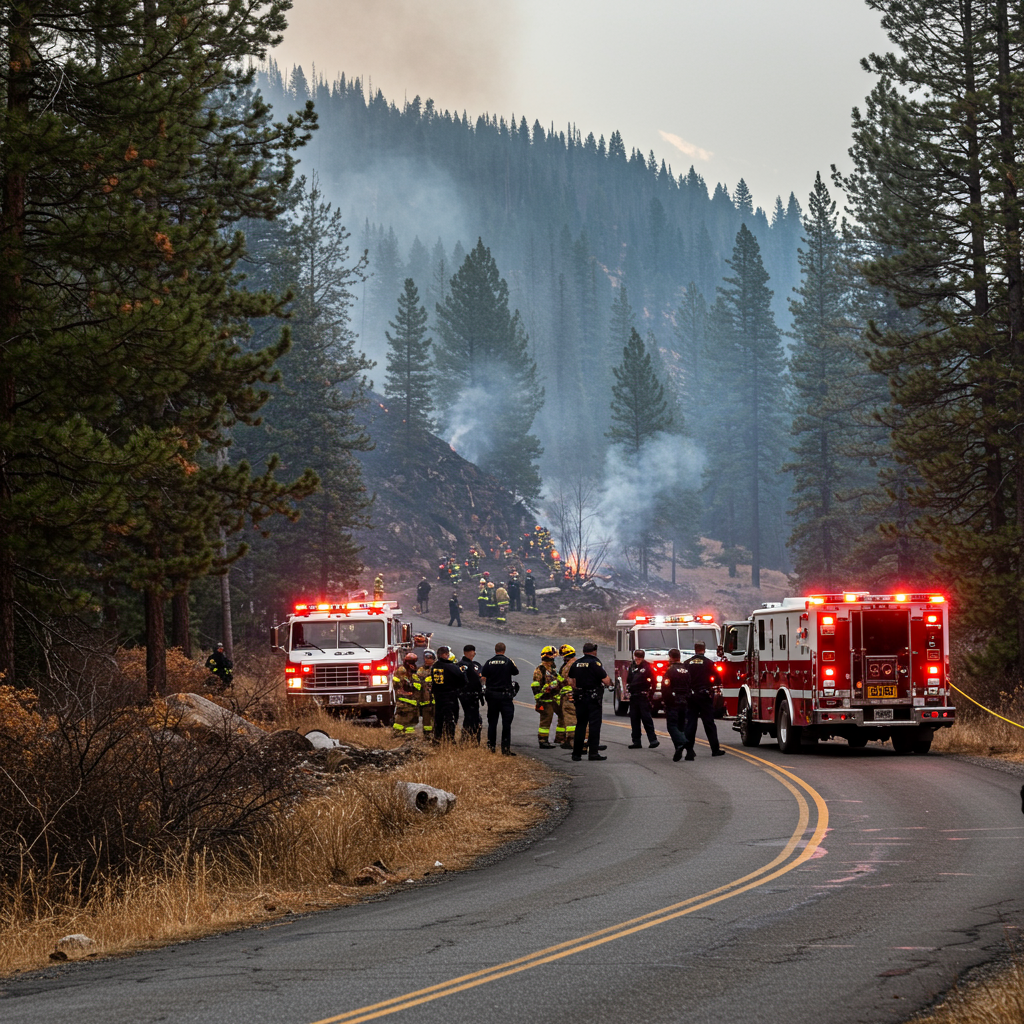The simmering conflict between Israel and Iran has erupted into direct military confrontation, pushing the Middle East to the brink. As Israeli strikes pound targets across Iran, including sites linked to Tehran’s nuclear program, the world watches anxiously, particularly focusing on the potential for direct U.S. military intervention.
Adding to the volatile mix, U.S. President Donald Trump is actively weighing options, including potential strikes against Iran’s nuclear facilities. Meanwhile, Iran’s Supreme Leader Ayatollah Ali Khamenei has issued fiery declarations, signaling a new phase in the hostilities.
Escalation and Israeli Actions
Operating under “Operation Rising Lion,” Israel has significantly intensified its aerial assault on Iran. Recent strikes have targeted key elements of Iran’s military and nuclear infrastructure. Israeli forces report hitting a centrifuge production site, weapon manufacturing facilities, a uranium enrichment facility, and sites producing parts for surface-to-surface and surface-to-air missiles. Over 50 Israeli Air Force fighter jets were reportedly involved in these operations.
Israeli officials assert that these strikes directly degrade Iran’s capacity to threaten Israel and the wider region, framing the actions as necessary to neutralize an “existential and imminent threat” posed by Iran’s nuclear weapons program and its alleged plan to encircle Israel with a “ring of fire” using proxy groups. Some Israeli leaders, including Defense Minister Israel Katz, have suggested the intense pressure could potentially lead to the collapse of the Iranian regime, viewing the strikes as hitting symbols of government. However, analysts caution that while the regime is unpopular, a popular uprising is unlikely given its tight grip on power, though internal power struggles could be fueled.
Reports indicate the strikes have hit locations near Tehran, including the Nobonyad Square area and Lavizan, and sites in western Iran near Isfahan. The sheer scale of recent attacks is underscored by claims from Israel’s Defence Minister that the Air Force is operating “freely in Iran,” a move described as unprecedented.
Iran’s Defiance and Response
Iran has responded with its own missile barrages aimed at Israel, triggering air raid sirens in major Israeli cities. However, reports suggest the size of Iranian ballistic missile salvos targeting Israel is decreasing, and Israel claims its defense systems have intercepted a high percentage of incoming missiles.
Crucially, Iran’s Supreme Leader, Ayatollah Ali Khamenei, has issued a stern warning, declaring “The battle begins.” He has vowed “no mercy” towards Israel and dismissed President Trump’s recent demands as “threatening and ridiculous.” Khamenei has warned that any U.S. military intervention would cause “irreparable damage” and that Iran will stand firm against an “imposed war,” promising that Israel will be “punished” for its actions.
Amid the conflict, Iran’s Revolutionary Guard also reported arresting five individuals in Lorestan province, accused of working for Israel’s Mossad spy agency. In Tehran, the situation on the ground is tense, with reports of residents fleeing the city, businesses closed, patchy communications, and fears forcing some to seek shelter in metro stations due to a lack of public bomb shelters.
The Looming Shadow of U.S. Intervention
President Trump’s public statements and behind-the-scenes deliberations are a major focus of international attention. The President has stated he is considering a U.S. military strike on Iranian nuclear sites and has issued a demand for Iran’s “unconditional surrender.” In stark language directed at Khamenei, Trump stated the U.S. knows his location but won’t kill him “for now.”
The potential for targeting deeply buried facilities like the Fordo nuclear site, located under a mountain, highlights the technical challenges and the unique capabilities the U.S. possesses. Experts note that destroying Fordo would likely require specialized “bunker buster” munitions like the GBU-57 Massive Ordnance Penetrator, deployable only by heavy U.S. bombers.
While Trump has maintained an element of unpredictability regarding his final decision (“Nobody knows what I’m going to do”), he has also stated his patience is wearing thin and claimed the U.S. now has “complete and total control of the skies over Iran.” The Pentagon has reportedly moved additional fighter jets and aircraft carrier groups to the region, underscoring the heightened state of readiness.
The possibility of direct U.S. involvement has sparked debate domestically and internationally. Some U.S. lawmakers have introduced legislation seeking to prevent intervention without congressional authorization, arguing the conflict is not America’s war. Meanwhile, Russia has explicitly warned the U.S. against providing direct military aid to Israel, cautioning it would “radically destabilize the entire situation.”
Nuclear Concerns and International Reactions
Concerns surrounding Iran’s nuclear program remain central. The head of the International Atomic Energy Agency (IAEA) recently expressed uncertainty about the current location of Iran’s near-bomb-grade uranium, which is technically supposed to be at the underground Isfahan facility. While IAEA inspectors are still in Iran, their normal inspection activities are currently suspended due to the conflict. Although no other country is enriching uranium at Iran’s rate, the IAEA has stated it has not seen concrete proof of an active nuclear weapons program yet. Iran’s atomic energy head maintains that their nuclear facilities are “doing fine.”
Internationally, reactions vary. Germany has expressed strong support for Israel’s campaign, with one official calling it the “dirty work Israel is doing for all of us” against a regime bringing “death and destruction.” The G7 leaders have affirmed Israel’s right to defend itself while stressing civilian protection and calling Iran the principal source of regional instability. China has begun evacuating its citizens from both Israel and Iran, and the UK is reportedly considering support for the U.S. should strikes occur. The U.S. Embassy and consulate in Israel remain closed, and a “do not travel” advisory is in effect for Americans.
As the conflict intensifies, potentially drawing in greater U.S. involvement and carrying significant risks for regional and global stability, the world watches to see whether diplomacy can halt the escalating violence or if the declared “battle” will expand further.



